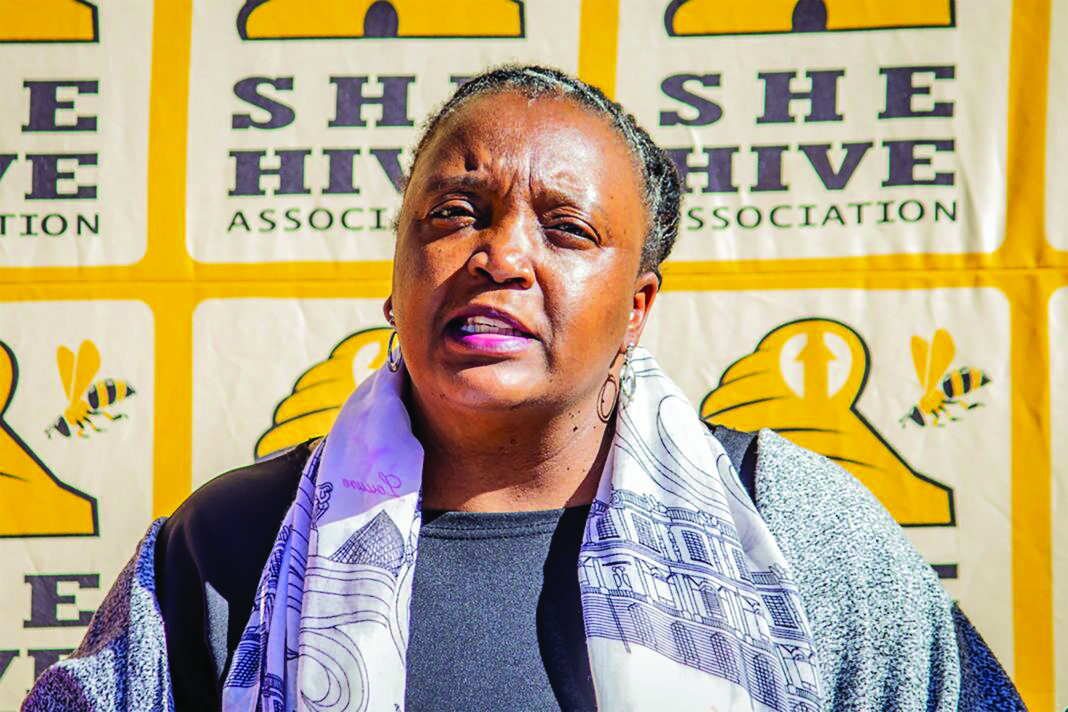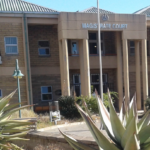Keiso Mohloboli
In a distressing revelation that has shocked the Ha Motjoka Nazareth community, a daughter has brought to light a dark family secret that was concealed for two decades.
Between 2000 and 2004, a father, who has remained unnamed because the date of the case is yet to be set on December 02, 2024, perpetrated a grievous crime against his then 13-year-old daughter, turning their home into a site of unthinkable horror.
This case has recently come into the spotlight after the daughter, now in her thirties, reported the long-suppressed ordeal to the police, prompting legal proceedings set to commence on December 2, 2024.
The father, who had been left in Lesotho by his wife working in South Africa for domestic employment, allegedly exploited the trust and vulnerability of his own child.
During these years of alleged abuse, he reportedly not only raped her on multiple occasions but also isolated her from her social circles, accompanying her to and from school at Lerotholi Secondary School in Ha Matela and forbidding her from associating with peers.
The psychological control he exerted, compounded by verbal threats of violence, including threats to kill, created an environment of terror, preventing her from seeking help.
The trauma of betrayal was not exclusive to the acts of violence; the daughter was faced with the agonizing burden of carrying a child in her early teens resulting from her father’s abuse.
The child, now a 23 years old herself, serves as a permanent reminder of the prolonged suffering the victim endured. Not only did this situation rob her of her adolescence, but it also instilled a deep-seated fear that hindered her from confiding in her mother or extended family, who remain unsupportive.
In September this year, after years of silence marked by trauma and fear of retaliation, the victim finally reported her father to the police, following DNA confirmation of the family’s dreadful truth, he was identified as the biological father.
Police investigations have established substantial evidence supporting her claims, yet the perpetrator is currently free on remand and is scheduled to appear in court on December 2, 2024.
The legal intricacies present a disheartening outlook on the pursuit of justice.
The court has declared this year as the final opportunity to address the case, despite the overwhelming evidence available. Advocates for victims’ rights are alarmed by what they perceive as systemic failures in addressing sexual assault cases promptly.
“As advocates for justice and survivors of sexual violence, we cannot remain silent in the face of the alarming delays in setting court dates for rape cases, especially when all necessary evidence has already been meticulously gathered by law enforcement,” said She-hive Association of Lesotho’s managing director, ‘Mamakhethe Phomane, echoing the sentiment of many who believe that cases like this should be prioritised to prevent emotional and psychological trauma from festering.
“These unnecessary delays threaten to invalidate the courage of survivors who have bravely come forward to seek justice. With the law prescription period nearly at its end, victims face the terrifying reality that their cases might fall into a bureaucratic abyss, leaving them vulnerable and denied the justice they rightfully deserve,” Phomane added.
She indicated that police have diligently gathered evidence, creating a solid foundation for prosecution and indicated that it is now the responsibility of the court system to ensure that this evidence does not go to waste.
“The integrity of our legal system hinges on its ability to process cases swiftly and fairly delays only erode public trust and deter other victims from seeking the justice they deserve,” she said.
Phomane also urged the judiciary to prioritise these cases and allocate the necessary resources to ensure that justice is not only pursued but is achieved without further delay.
“Community members, we call on you to join us in advocating for greater accountability in our legal system, promoting policies that uphold the rights of survivors and emphasise timely judicial processes.
“Let us stand together to demand justice for victims of sexual violence and ensure their voices are heard. Together, we must push for systemic reforms that guarantee timely action in all cases of abuse, for the integrity of our justice system and the dignity of every survivor.”
As a local activist dealing with issues of elimination of Gender-Based Violence (GBV) Phomane warned that extensive delays could enable a repeat of trauma for the victims and discourage others from coming forward with their stories.
As the legal system gears up for the trial, the implications of allowing such cases to go unattended resonate deeply within the community.
Survivors may hesitate to share their experiences or seek justice, fearing that they will also face time constraints in legal recourse. The need for urgent action in the face of clear evidence cannot be overstated; every delay creates a chilling precedent that threatens to embolden abusers.
In the wake of this heart-wrenching story, Lesotho grapples with the larger societal issue of domestic violence and the barriers victims face when confronting their oppressors. Observers hope that the case’s visibility may spur discussions on better support for survivors and increased accountability for perpetrators.
However, Advocate Matsaseng Ralekoala (Assistant lecturer and PhD Candidate on International Laws at the University of Limerick, Ireland) said the victim’s rights remain protected as long as her case is recorded within the law’s prescription period.
“While 2024 was designated as the final year for initiating proceedings due to the time elapsed since the alleged rape, the law allows for the continuation of court processes as long as the case was logged in court within the legal time frame.”
“This means that the victim’s case will be fully pursued in the court system regardless of how long it takes to resolve.”
As the community watches closely, many are left pondering how one man could shatter the innocence of his child while continuing to evade justice.
Meanwhile, the perpetrator, now in his third marriage and residing in Qoaling, Maseru, represents a figure of ongoing menace – a stark reminder of the work still needed to safeguard vulnerable individuals from similar fates.
This tragic case has raised important questions about the intersection of familial trust, societal stigma, and the critical need for effective legal action in the face of heinous crimes.
As the court date approaches, all eyes remain trained on the pursuit of justice, previously side-lined but now impossible to ignore.
Summary
- During these years of alleged abuse, he reportedly not only raped her on multiple occasions but also isolated her from her social circles, accompanying her to and from school at Lerotholi Secondary School in Ha Matela and forbidding her from associating with peers.
- In September this year, after years of silence marked by trauma and fear of retaliation, the victim finally reported her father to the police, following DNA confirmation of the family’s dreadful truth, he was identified as the biological father.
- “As advocates for justice and survivors of sexual violence, we cannot remain silent in the face of the alarming delays in setting court dates for rape cases, especially when all necessary evidence has already been meticulously gathered by law enforcement,” said She-hive Association of Lesotho’s managing director, ‘Mamakhethe Phomane, echoing the sentiment of many who believe that cases like this should be prioritised to prevent emotional and psychological trauma from festering.

Your Trusted Source for News and Insights in Lesotho!
At Newsday Media, we are passionate about delivering accurate, timely, and engaging news and multimedia content to our diverse audience. Founded with the vision of revolutionizing the media landscape in Lesotho, we have grown into a leading hybrid media company that blends traditional journalism with innovative digital platforms.









